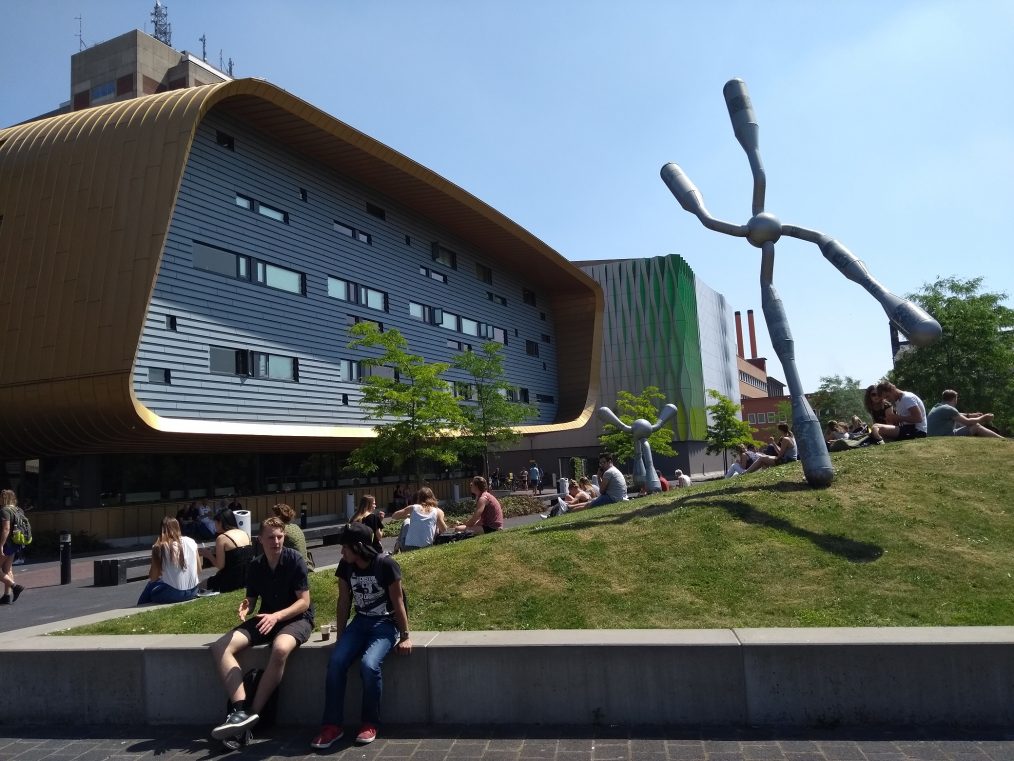
CPE: A combination of psychology and medicine
“Which specialization should I take within the broad discipline called Psychology?” Numerous Psychology Bachelor students struggle with this issue and are doubtful about which Master’s degree they should pursue. Plenty of options are available within the University of Groningen alone, including 11 (!) different Master programs at the Faculty of Behavioural and Social Sciences. Moreover, there are additional options outside our faculty, and quite a few Psychology students may not be aware of them. For example, there is the Research Master program in Clinical and Psychosocial Epidemiology (CPE). Based in the Universitary Medical Center Groningen (UMCG), this program welcomes students from both the medical as well as the social sciences.
CPE was exactly what I was looking for, and not because the acronym matches my initials. I knew I was interested in research but I wanted it to be embedded in an applied and interactional setting. CPE appeared to be very well suited for this. This can be partly attributed to their inclusion of four different hospital departments of the UMCG: Public Health, Health Psychology, Epidemiology, and Psychiatry. Besides, the program has quite a wide variety of international students: in the cohort of my year, there are not only students from both the Netherlands and Germany (as the majority of Psycholoy students are), but also Thailand, South-Korea, and Ethiopia, for example. In our interactions, different kinds of perspectives are used: approximately half of the students comes from various subdisciplines within the medical sciences, while the other half has a background in one of the social sciences.
Student experiences
I asked several fellow CPE students who also completed the Psychology Bachelor program in Groningen about their experiences with CPE.
How did you find out about CPE? Most fellow students were impressed by the program during the Master’s week. René was one of those students. ‘What particularly attracted me was the fact that psychological research was embedded in a broader context of the medical sciences’, he says. Other students agree with this point.
What has been your experience with the program during the first semester? Sara says: ‘I find that the program is of high quality. Classes are taught in small groups and there is much interaction with teachers, who are very skilled and from loads of different fields.’ René adds: ‘I am impressed by the in-depth knowledge of the teachers. They really are experts in their own field.’ Margarita and Jane* agree, but also add that the workload can be challenging at times.
“What particularly attracted me was the fact that psychological research was embedded in a broader context of the medical sciences” (Sara, CPE-student)
The type of research that is conducted in the four previously mentioned research departments is often praised as well: it happens in a very applied setting, which makes that teachers are often able to speak from their own rich experiences when explaining materials. Quantative research is CPE’s main focus; this is reflected by the fact that all Master Thesis projects need to be quantitative in nature. However, it is emphasized that qualitative research is valued too, and it is therefore possible to get involved into research projects besides the Master Thesis that have a rather qualitative focus. One of such projects is the Juggle study: here, interviews are conducted to investigate the mental health of medical students in Groningen.
What does the program look like content-wise?
While most faculties at the University of Groningen divide the academic year into four blocks with multiple courses per block, this program has a different approach. Usually students have only one intensive course at a time for a duration of three weeks. Foundation courses are taught in the beginning, focusing on study design, methodology, and statistics. Students with a background in social sciences take a ‘Basics in Medicine’ course, while students who have a background in medicine get an introductory course in psychology. The program has a mix of teaching fundamental knowledge and essential skills; thinking about academic writing, coming up with and designing a study, and subsequently writing a ficticious grant proposal. After these courses, a specialization trajectory comes into play. Specialization happens in two ways: Firstly, by the wide range of electives that can be taken after the foundation courses. To illustrate this point, it is possible to follow elective courses on health economic modelling, quality of life, genetic epidemiology or advanced statistics. Secondly, students can specialize on a specific topic within the Master Thesis Project. Students can conduct their Master Thesis at any of the four hospital departments mentioned previously (Public Health, Epidemiology, Health Psychology and Psychiatry)! This leaves much room for own preferences and reflects the variation in backgrounds that each CPE-cohort has. Students who prefer medical topics may study predictors of health outcomes in cancer patients or the effects of smoking during pregnancy. But thesis topics may also be very psychological, such as the functioning of cancer patients who get back to work, coping with chronic disease, communication in genetic counseling and the effects of mindfulness-based cognitive therapy. For the purpose of the Master Thesis, several large cohort samples can be used, such as Lifelines and Trails.
“Classes are taught in small groups and there is much interaction with teachers, who are very skilled and from loads of different fields.” (René, CPE-student)
In this way, CPE is in my view an excellent way to prepare for a future career in academia. However, other options are available as well: think about a position within a health care organization or a company. What direction do my fellow students take? Some are not sure yet and are open for possibilities outside the academic world as well. Others already know that they will apply for a PhD position. CPE seems to be a good step in that direction. What direction will you take?
NOTES. Picture taken by author. * this student preferred to remain anonymous; Jane is a pseudonym.




I would like to meet Carel-Peter in person. How can I get in contact with him?
Hi Ursula,
If you send us an email at mindwise/AT/rug.nl with a message for Carel-Peter, we’ll forward it on your behalf!
_tassos